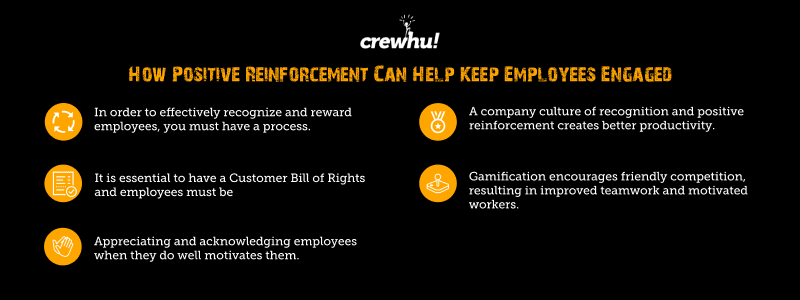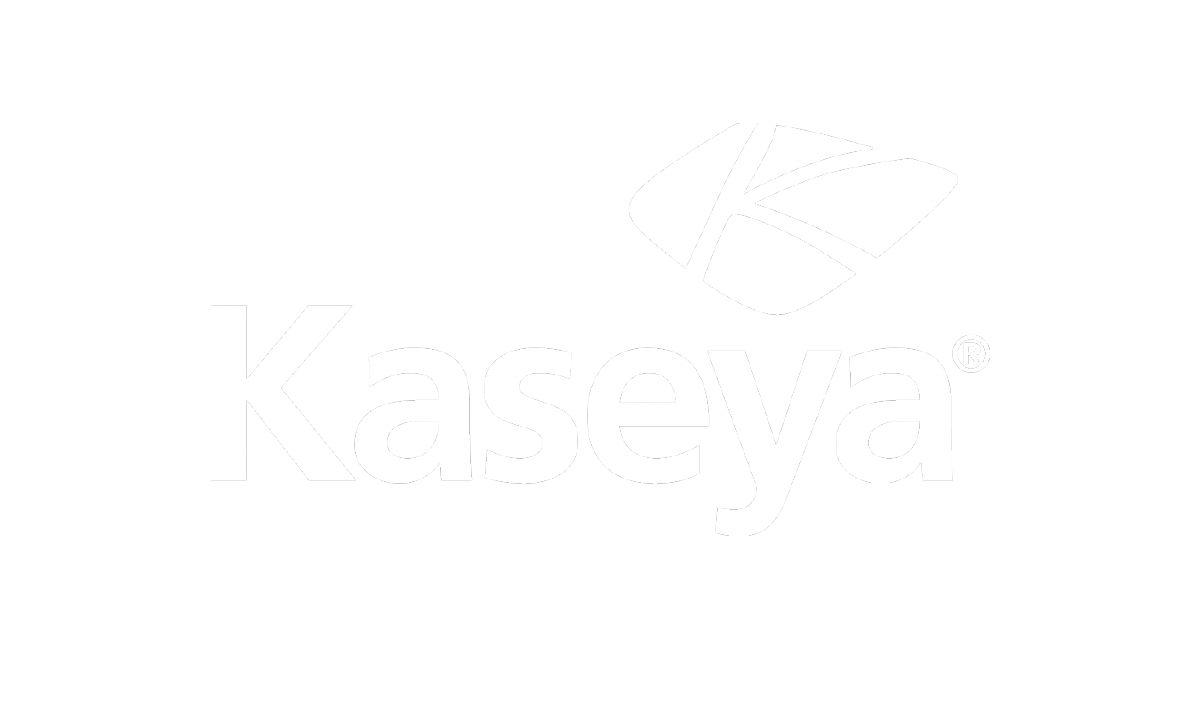How Positive Reinforcement Can Help Keep Employees Engaged

Positive reinforcement can have a huge impact on your employees’ morale, which has an equally important impact on your company’s bottom line. It all starts with customer service. Here’s how to operationalize core values.

Your workplace can’t always feel like a day at Disneyland, with an unending supply of energy and excitement. Employees are bound to lose motivation or become less engaged over time. They're humans, after all.
Positive reinforcement in the workplace acknowledges an employee's good behavior and encourages them to repeat it. Your employees will feel appreciated if you reward them with a bonus, promotion, or perk like an executive parking spot for a month when they meet goals or excel in their tasks. The promise of future rewards keeps employees engaged and encourages teams and individuals to work effectively.
Here's how positive reinforcement can keep your employees engaged.
It increases employees’ confidence in their abilities
Employees who are rewarded for good performance tend to feel an increase in their sense of self-worth and confidence in their skills. This has many additional positive results, including:
- That they know their efforts are acknowledged and appreciated by a manager
- Becoming more confident and engaged in their work
- Improved teamwork and employee engagement
- Increased interest in education, training programs, and earning more credentials
Employees who feel valued care more about their jobs and the roles they play. They tend to be highly qualified, so your workplace gets the benefits of their skills and abilities both today and as they climb the internal ladder to further their careers.
It helps motivate effective works
While paychecks and benefits are important, they aren’t at the top of the list in terms of the motivation factors employees tend to value most. One study found that peer motivation (20%) and an encouraging manager (15%) are the most motivating factors, for example.
Genuine, positive reinforcement motivates workers, increases job satisfaction, and creates engaged employees. Acknowledging a job well done makes your worker feel good and encourages them to handle other tasks with the same enthusiasm. Everybody loves being recognized for something they've done well, and having that recognition come from a superior will carry even more weight.
It improves overall workplace morale
Imagine a work environment where the supervisor shouts at everyone, and no one recognizes your efforts no matter how good you perform. It’s even worse if management constantly reminds you that it's your job and you're getting paid for it. That may be true, but no one enjoys spending time in an overly demanding work environment that makes them anxious.
An employee who looks forward to coming to work every day is much more likely to be enthusiastic, feel motivated to perform their tasks, and show an interest in their work. Such engaged employees tend to be happier and more satisfied with their jobs, too, thus improving overall morale. Incorporating positive reinforcement techniques and recognition programs for jobs well done keeps your employees engaged and create a positive company culture.
Peer recognition breeds engagement
Receiving feedback and recognition from a peer feels like a pat on the back. It also shows an employee that both their management and coworkers appreciate their work, and that creates a sense of dependability and shared responsibility. Individuals and teams can work better and more intentionally when they know how their work affects the success of others in the company.
A marketer may find out the work they put in to develop a marketing campaign helped the sales team hit their quarterly goals, for example. That feedback, plus peer recognition, makes the entire marketing team aware of how its efforts contributed to an organizational win.
This connection helps employees be more engaged in their work, improves their desire to replicate the results, and increases their overall productivity.
Incorporating gamification makes tasks more interactive
Employees who handle the same tasks daily may become bored and less motivated over time, but adding game-like components and rewards through gamification makes work more fun and interactive. Adding gamification into your positive reinforcement plan encourages teamwork and collaboration, while the competition, storytelling, and problem-solving techniques keep your employees engaged.
Other benefits of gamifying your workplace include:
- Increased employee productivity
- Boosts in morale
- Reduced employee burnout
- Strengthened relationships between employees and employers
Employees who earn recognition and rewards through gamification will be motivated to do their best. This kind of system encourages friendly competition and can help keep your workers productive and engaged with their tasks.
How Crewhu can improve your employee recognition and increase engagement
Employee recognition is the first step toward positive reinforcement. Workers who feel appreciated are more likely to be engaged in their work, and that has huge long-term benefits for your company.
Crewhu helps you empower your team by fostering a company culture of recognition and collaboration. Our platform provides you with tools so you can reward a job well done, create a gamification culture, and keep your team engaged. We'll help you show how much you value your employees for the great work they do every day, and that you want to keep your company culture upbeat and positive.
Schedule a demo today to learn how Crewhu makes it easy to keep your employees engaged.






